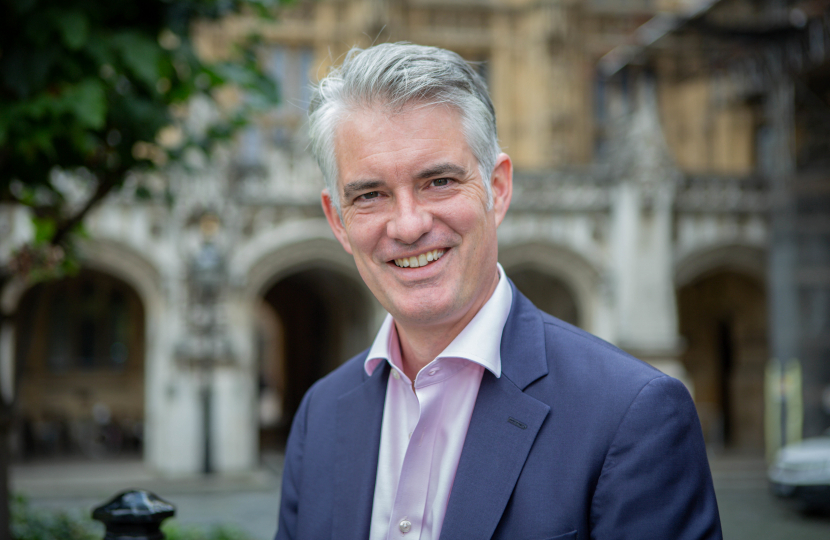
Since I last wrote, some of our most important national and global political issues have been played out at the most local level. I’m pleased to report that the results have been very positive.
As an MP representing market towns and an otherwise largely rural constituency, I’m acutely conscious that I have a role to ensure that the infrastructure which all communities need to thrive – from mobile masts to road improvements – is delivered as sensitively as possible. This isn’t ‘NIMBYism’. We all have a duty of care to our natural environment, and to ensure its condition improves for future generations.
In national and international policy terms, the metric that matters is carbon emissions. We have worldwide agreements to reduce our emissions, and therefore reduce the threat of global warming and the risk it poses. The UK has been a leader in this field, setting an example and accelerating the shift to greener energy – but, as the Prime Minister has been clear, in a way that does not take unaffordable steps for the public at large.
In fact, latest figures show that the UK’s carbon emissions are at the lowest level since 1879 – when Queen Victoria was on the throne. What is the local embodiment of this progress? East Anglia’s extraordinary contribution to greening our energy system – with offshore wind exploding in capacity terms in recent years.
And yet, that green energy needs different infrastructure to the electricity grid of the past. So, when National Grid came forward with a singular ‘choice’ of options for how to increase our local grid capacity – traditional pylons, right through our countryside – I promised to work with colleagues to put more options on the table.
I’m pleased to confirm that ESO have now published the independent ‘Network Study’ that resulted from all that campaigning. It’s a complex document and my immediate comment has been to appeal for time so that the communities I represent can digest it. But the unexpected findings that an underground network made from HVDC could be as cost effective as pylons could yet be a major step forward – if only National Grid can give us the time and space to work through these options.
Another international issue with huge local implications has been the war in Ukraine, forcing up energy costs for households and businesses alike. Whilst cleaner energy provides an obvious benefit in terms of its lower emissions, for me, the war in Ukraine has also shown the importance of energy security; wind power gives us the freedom to be less reliant on foreign supplies. This makes the need for new transmission all the more important – but it also underlines why we need to carry communities with us, since democracy is ultimately what is at stake if despots like Putin continue to advance.
Of course, energy costs and inflation more broadly have started to reduce but cost of living pressures remain. So, I welcome the tax cuts announced in the Budget. Taken alongside an 8.5% increase in the state pension from April, we are significantly boosting peoples’ spending power.
This points to the other side of the ‘cost of living’ ledger: earnings. Withdrawal from the labour market post-pandemic has become another major national issue to grapple with, though faced by many nations, and I am passionate about getting more people off benefits and into work - not least so that we can reduce our reliance on migrant hires.
The recent local manifestation of this was my Jobs Fair in the Sudbury Arts Centre on March 4th, delivered in partnership with the Sudbury Chamber of Commerce, to kick off schools’ careers week. I was delighted by the turnout, with over 900 attendees visiting the 50 stands displayed by a wide range of employers and training providers.
I know there has been some debate about what we call the former St Peter’s Church, but credit where it’s due – the team delivered an excellent event, and did so again the following Friday with an Art exhibition in aid of stroke survivors; which I was delighted to visit (and purchase a fetching painting of a fox, chosen by one of my nine year old twins).
Such a venue is going to be ever more economically significant. With Gainsborough’s House recently receiving £250,000 in Lottery funding, plus money off entry to the venue for those coming to our part of the world by train. It points to the underlying strengths of our district’s economic offer – if we can find the recruits from our local workforce to deliver that potential.
Published in the Suffolk Free Press.

